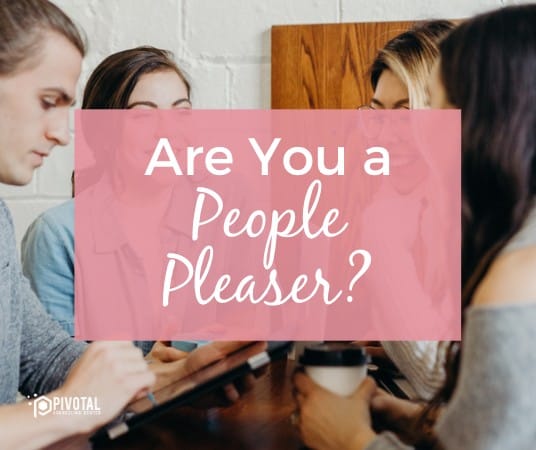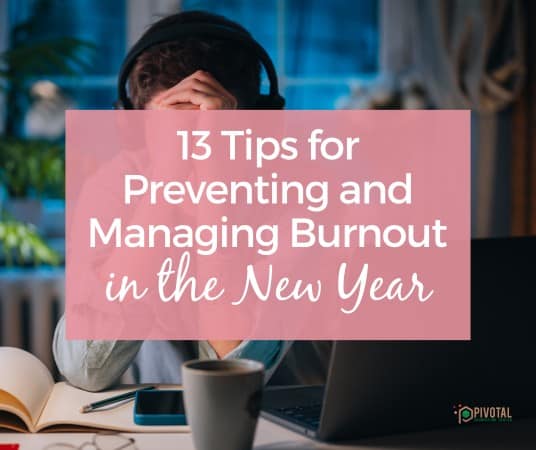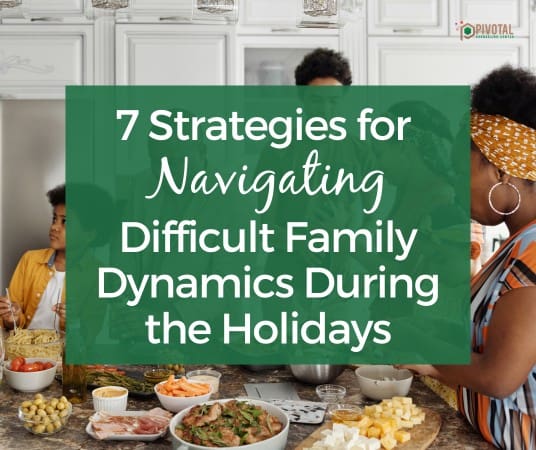
Are you a people pleaser?
First: what is a people pleaser? A people pleaser is someone who, above all else, likes to keep the peace. They often sacrifice their own comfort and happiness for the comfort and happiness of others. People pleasers hate conflict, and will do just about anything to avoid it. They want everyone they’re with to be happy, and to get the external validation they need from pleasing others; people pleasers only feel acceptance and love when others are happy with them.
What are the signs of being a people pleaser?
Is every conflict avoidant a people pleaser? Is everyone who likes to hear that they’ve done a good job a people pleaser? If you like people to enjoy their time with you, are you a people pleaser?
It’s not as simple as you like when others are happy, so you must be a people pleaser. The key difference is the amount of self sacrifice that goes into people pleasing. Being happy when you’ve made others happy while still having firm boundaries doesn’t make you a people pleaser! Some signs of being a people pleaser are:
- Frequent apologizing when you haven’t actually done anything wrong
- You feel anxious when others express being unhappy, even minorly
- You do everything you can to avoid conflict
- You hide ways you are different to or disagree with the people around you
- Agreeing with opinions you don’t hold, especially when they violate your personal values
- You never say no
Where does the compulsion to please everyone come from?
There are a lot of reasons people may want to please those around them. Their own specific reason will probably tie back to how they were raised, the ways they learned to attach to and connect with others. Some reasons could include:
- Insecurity or low self esteem: Someone with low self esteem or high insecurity may feel they need the validation of others being happy or pleased with them to feel like they have done a good job, and are worthy of time, attention, and care.
- Perfectionism: Perfectionists feel they need to make every situation “just right” which can include making sure everyone is happy or content at all times.
- Fear of rejection: People pleasing can be a coping mechanism for fear of rejection–one going out of their way to make another happy in order to prevent the rejection from happening.
How does being a people pleaser negatively affect your life?
People pleasing isn’t about being able to compromise or work well with others. Rather, it’s often self sacrificing: you give up your time, your energy, your emotional and mental peace in order to keep others happy. And because of that, it can feel like personal failure when others aren’t happy.
But you can’t actually control whether or not others are happy (there are many things that impact what we’re feeling at any given time, and even if someone is trying to make you happy, that doesn’t mean you will be!)–which can build anxiety, anger, resentment when you’re unable to control that and get the validation you feel you need.
Plus, if you’re always saying yes to things, you’re not leaving enough time for yourself, your own responsibilities, or your need to rest. You’ll burn out! You may even struggle with your sense of self as you grow older; if you’re always looking to make others happy and comfortable, do you still know what you like? What your values are?
How to stop being a people pleaser:
There’s not a switch to flip to stop people pleasing tendencies, but there are some things you can do to start to reduce those tendencies as you work with a therapist and find the root of the behavior.
Reevaluate and establish healthy boundaries:
What are your personal, professional, social, etc boundaries? How much can you take on in each area of your life? Where do you want to be putting your time and energy and resources? How much do you have to spare after you’ve met that?How will you communicate this to people? How will you respond if someone pushes/violates a boundary?
Get familiar with the phrase “let me check, I’ll get back to you.”
If saying no outright is hard, this can be an easier way to stop yourself from saying yes to everything just to avoid disappointing someone. Letting someone know you have to check and will get back to them takes away the pressure to please them in the moment, and sets the expectation that while you would like to help them, if you have a conflict you won’t be able to. It’s a respectful way to be considerate of others while still making sure you don’t abandon your own needs.
Get in touch with your own needs
How would you spend your time if no one else had any need for your time? If it was 100% just you? What is it you want to be doing? What’s getting in your way? How can new boundaries help this?
Practice “no”
Saying no is hard! It’s going to take practice to get better at it and to feel comfortable saying it outright. You don’t have to say no to everything, just practice by saying no to small things until you learn it’s not actually a big deal and people can make accommodations for themselves. If you’re used to doing everything for everyone, it can be easy to forget that you’re not the only support system available to people. Give yourself the reminder by saying no to small requests and seeing people are able to manage without you.
Are you looking for more support to stop people pleasing tendencies? Working with a therapist can help give you tools and insight to change behaviors that are no longer serving you. Get in touch with us today to get started.
Pivotal Counseling Center is now accepting Medicaid including Blue Cross Community Medicaid, Meridian Medicaid, and Molina Medicaid for outpatient counseling.









